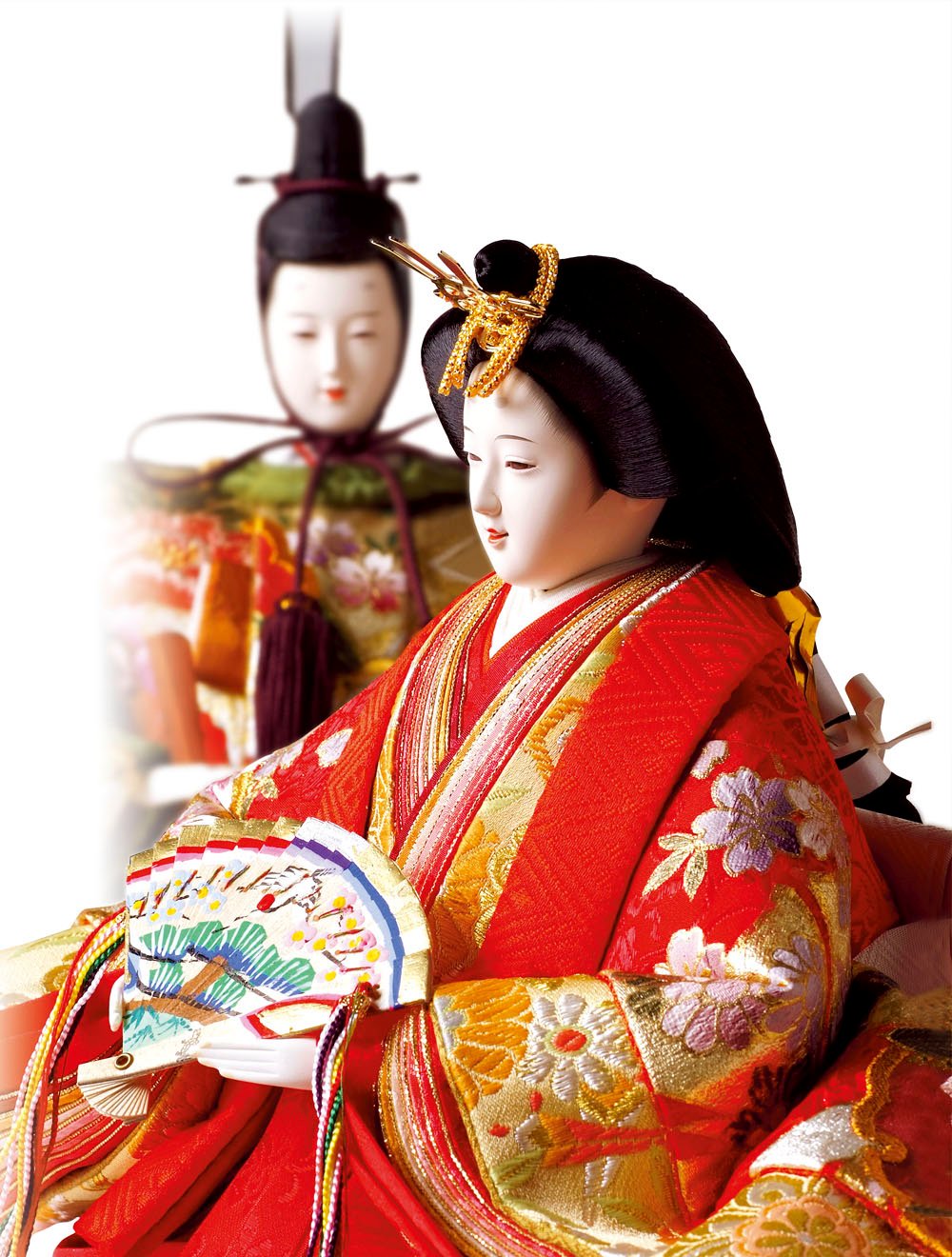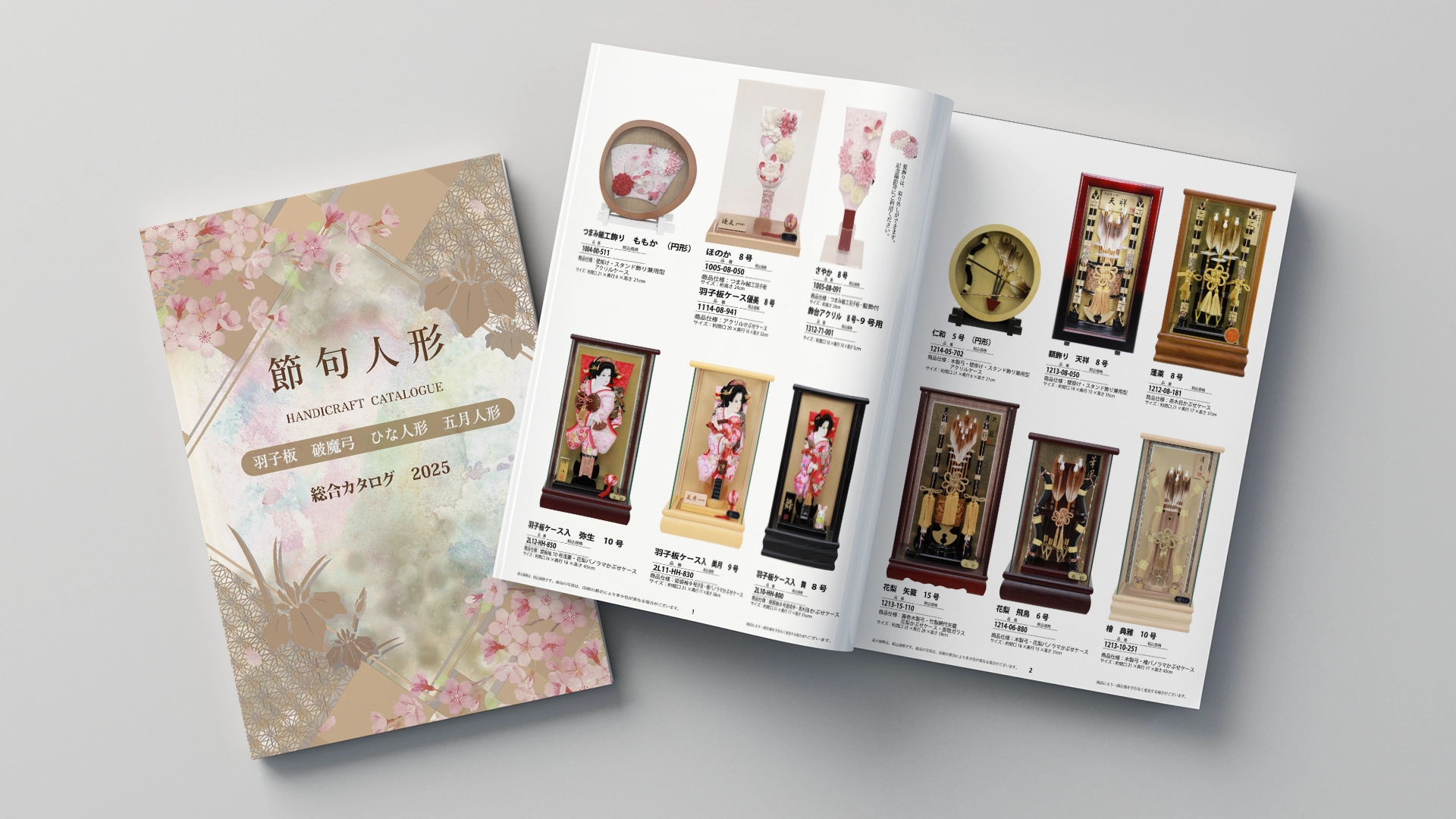Industry News, News
Exploring the Beauty of Japanese Traditional Goods
Japanese traditional goods are super cool, right? They’re not just pretty things; they tell a story about Japan’s history and culture. Think about all the hard work and skill that goes into making them. This article will look into what makes these items so special, from their deep cultural roots to how they’re made, and even where you can find them today. We’ll also see how these old traditions are fitting into our modern world.
Key Takeaways
- Japanese traditional goods are tied to the country’s history and values.
- Each item shows off unique skills and materials from its local area.
- Today’s makers are mixing old ways with new designs.
- You can learn a lot about these goods by seeing them made or trying it yourself.
- Even though there are challenges, people are working hard to keep these traditions going for the future.
Understanding The Essence Of Japanese Traditional Goods
For businesses looking to source authentic Japanese goods, understanding what makes them special is key. It’s more than just how they look; it’s about history, skill, and what they mean culturally. Let’s look at what makes these items so unique.
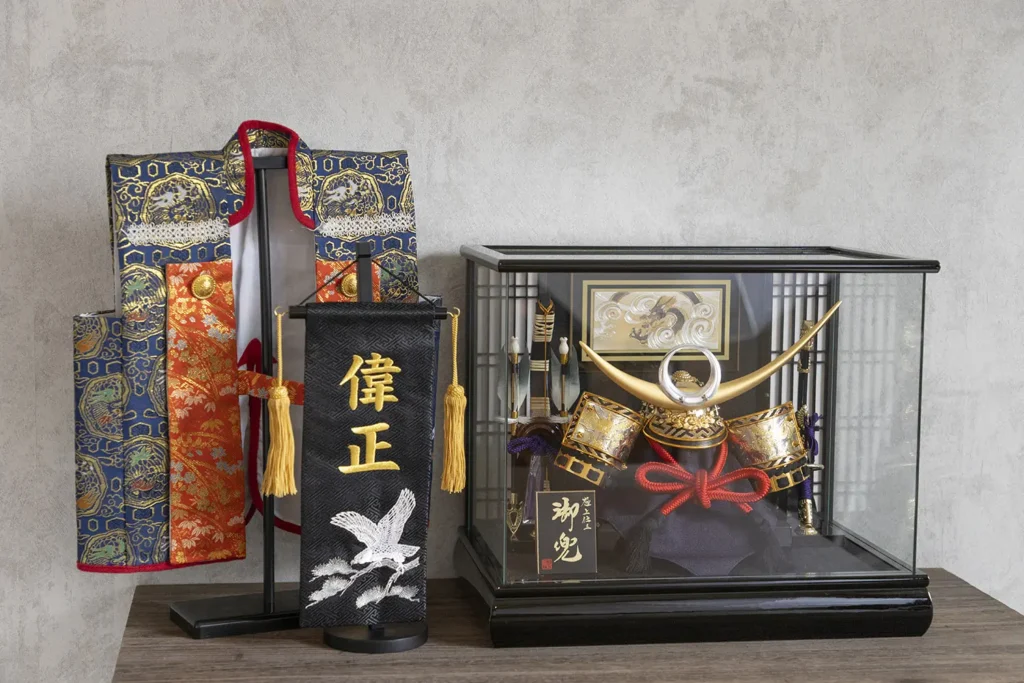
Understanding The Essence Of Japanese Traditional Goods
Cultural Significance
Japanese traditional goods are deeply connected to the country’s history and values. They often show religious beliefs, social structures, and daily life. These items aren’t just things; they carry cultural memory. For example, the patterns in Japanese embroidery often reflect traditional Japanese architecture, showing how different art forms connect. Knowing this cultural background is important for businesses that want to sell these products respectfully and effectively.
Japanese traditional goods offer a mix of art and usefulness, making them good for businesses wanting real, high-quality products. By understanding the details of each craft, you can find items that show the rich history and skill of Japanese artisans.
When considering Japanese traditional goods, think about their cultural ties:
- Storytelling: Each item has a story, often tied to specific regions or historical events. Sharing these stories adds value for your customers.
- Symbolism: Many goods carry symbolic meanings, like good fortune or protection. Knowing these symbols helps in marketing.
- Context: Understanding when and how these items are traditionally used helps you present them accurately.
Timeless Artistry And Skill
Japanese traditional goods are known for their lasting artistry and the incredible skill involved in making them. Many techniques have been passed down through generations, refined over hundreds of years. This means each piece is a result of long-standing dedication and precision. For example, the detailed work in a traditional Japanese doll or the careful layers in lacquerware show a level of craftsmanship that is hard to find elsewhere. This commitment to quality makes these goods stand out.
- Precision: Artisans often work with extreme precision, ensuring every detail is perfect.
- Material Mastery: They have a deep understanding of natural materials, using them in ways that highlight their best qualities.
- Generational Techniques: Many skills are taught from master to apprentice, keeping ancient methods alive.
The Role Of Artisans
Artisans are at the heart of Japanese traditional goods. They are the ones who keep these traditions alive, often dedicating their lives to perfecting their craft. Their work is not just about making things; it’s about preserving a cultural heritage. When you source from a company like Fujiki Crafts, you are supporting these artisans and their continued work. This direct connection to the makers ensures authenticity and quality.
| Artisan Role | Description | Impact on Business |
|---|---|---|
| Master Craftsman | Leads production, trains apprentices | Ensures consistent quality and traditional methods |
| Apprentice | Learns techniques, assists masters | Helps preserve skills for future generations |
| Material Specialist | Selects and prepares raw materials | Guarantees product integrity and authenticity |
Working with artisans means you get products made with care and a personal touch. It also means you can offer your customers something truly unique and meaningful. To explore more about these unique products, check out our Japanese traditional crafts selection. If you’re interested in learning more about how we work with artisans and ensure the quality of our products, feel free to contact us. We’re always happy to discuss how we can help your business succeed with authentic Japanese goods. You can also learn about the concept of Ikigai, which often drives these artisans.
Exploring The Diversity Of Japanese Handicrafts
Japan has a lot of different handcrafted items. These are great for businesses or for selling to other countries. These crafts show off hundreds of years of tradition and skill. Let’s look at some main types.
Ceramics And Pottery
Japanese ceramics and pottery are known for being good quality and artistic. Different areas have their own styles, each with its own look. For example, Seto ceramics use the idea of wabi-sabi, which means they like things that are not perfect or are a bit uneven. This is different from things made in factories, and it’s good for businesses that want real, handmade items. Think about these things when you are looking for products:
- Regional differences: Look into the styles from different pottery places like Seto, Mino, and Arita.
- Material quality: Learn about the types of clay used and what they are like.
- Authenticity: Make sure you are getting real, handmade pieces, not copies.
Japanese ceramics are not just dishes; they are pieces of art that tell a story about the region they came from and the person who made them. They can add a unique touch to any product line.
Textiles And Weaving
Japanese textiles are famous for their detailed patterns and strong materials. Kimono fabrics, for example, often use complex weaving and dyeing methods. These textiles are not just for clothes; they can be used for home decor, accessories, and other things. If you are thinking about textiles, here are some things to consider:
- Weaving methods: Learn about different techniques like Nishijin-ori or chirimen.
- Dyeing processes: Look into traditional dyeing methods like Kyo-Yuzen.
- Design patterns: Understand the meaning behind common Japanese patterns and symbols.
Lacquerware And Woodcraft
Lacquerware and woodcraft show how much the Japanese care about small details and natural materials. These crafts often have detailed carving, careful joints, and layers of lacquer to make things strong and pretty. For businesses interested in these crafts, think about:
- Wood types: Find out about the different kinds of wood used and their qualities.
- Lacquer methods: Understand how lacquer is put on and what it does to the finish.
- Design elements: Look for pieces that have traditional Japanese designs. Fujiki Crafts can help you find the right items for your business.
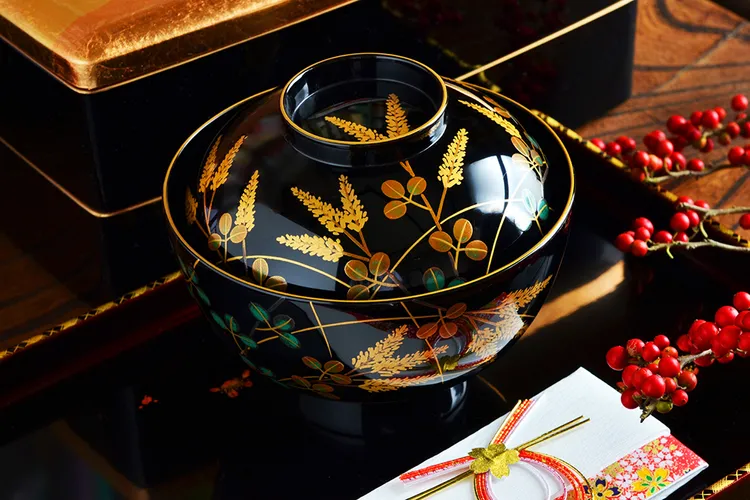
Lacquerware
Traditional Techniques In Japanese Craftsmanship
Meticulous Craftsmanship
Japanese traditional crafts are known for their incredible attention to detail. Artisans spend a lot of time on each piece, making sure everything is just right. This isn’t about rushing; it’s about creating something that lasts and looks good. For businesses, this means you’re getting products that are built to a high standard, which can set your inventory apart.
Consider these aspects of meticulous craftsmanship:
- Precision: Many techniques involve exact measurements and careful execution.
- Patience: Some crafts take weeks or months to complete, requiring dedication.
- Quality Materials: Artisans often select the best natural materials, which contribute to the final product’s durability and beauty.
When you source traditional Japanese crafts, you’re not just buying an item; you’re investing in a piece of art that reflects centuries of refined skill. This commitment to quality makes these products a reliable choice for discerning buyers.
Generational Knowledge Transfer
One of the coolest things about Japanese traditional crafts is how the knowledge gets passed down. It’s not usually written in books; it’s taught from master to apprentice, often within families. This way, the old techniques stay alive and keep their authenticity. This kind of traditional craftsmanship means that the methods used today are the same ones that have been proven over hundreds of years. It’s a strong foundation for any product line.
Here’s why this transfer matters for your business:
- Authenticity: Products are made using time-tested methods, ensuring genuine traditional quality.
- Consistency: The long history of teaching means techniques are well-established and consistent.
- Storytelling: Each piece comes with a rich history of learning and tradition, which is a great selling point.
Innovation In Traditional Methods
Even with all the tradition, Japanese artisans aren’t stuck in the past. They’re always finding ways to make things better or adapt them for modern tastes, while still respecting the old ways. This might mean using new tools that help with precision or finding new applications for traditional materials. It’s about keeping the crafts relevant and appealing to a wider audience, which is good news for businesses looking for unique items.
This blend of old and new offers several benefits:
- Modern Appeal: Products can fit into contemporary designs while retaining their traditional roots.
- Durability: New techniques or materials might improve the product’s lifespan.
- Market Expansion: Adapting designs can open up new markets and customer segments for Japanese traditional crafts.
If you’re interested in learning more about how these techniques can benefit your business, feel free to reach out to Fujiki Crafts. We’re always happy to talk about our products and how they’re made.
Sourcing Authentic Japanese Traditional Goods
Finding real Japanese traditional goods for your business can be a bit tricky. You want items that are truly authentic, made with care, and ready for international shipping. It’s not just about buying something; it’s about getting pieces that tell a story and hold real value. This section will help you figure out how to get those genuine articles.
Identifying Quality Suppliers
When you’re looking for suppliers, you need to be sure they know their stuff. A good supplier will be transparent about where their products come from and how they’re made. They should be able to give you details about the artisans and the techniques used. Think about these points:
- History and Reputation: How long have they been around? Do they have good reviews or testimonials from other businesses?
- Product Range: Do they specialize in certain crafts, or do they offer a wide variety? A focused supplier might have deeper knowledge.
- Communication: Are they easy to talk to? Do they respond quickly and clearly to your questions? This is super important for international business.
It’s not just about finding a seller; it’s about finding a partner who understands the nuances of traditional Japanese crafts and can help you bring that quality to your customers.
Ensuring Authenticity
Authenticity is key when it comes to traditional goods. You don’t want to end up with mass-produced items that lack the soul of true craftsmanship. Here’s how to check:
- Material Sourcing: Ask about the materials. Are they locally sourced? Are they traditional materials for that specific craft?
- Craftsmanship Details: Look for signs of handmade quality. Are there slight variations that show it wasn’t machine-made? A good supplier can explain the process.
- Certifications or Guild Affiliations: Some traditional crafts have specific certifications or are part of artisan guilds. This can be a strong indicator of authenticity.
Partnering With Fujiki Crafts
Fujiki Crafts is a reliable partner for businesses looking to import authentic Japanese traditional goods. We understand the ins and outs of the export process and work directly with artisans. Our goal is to make it easy for you to get high-quality, genuine products.
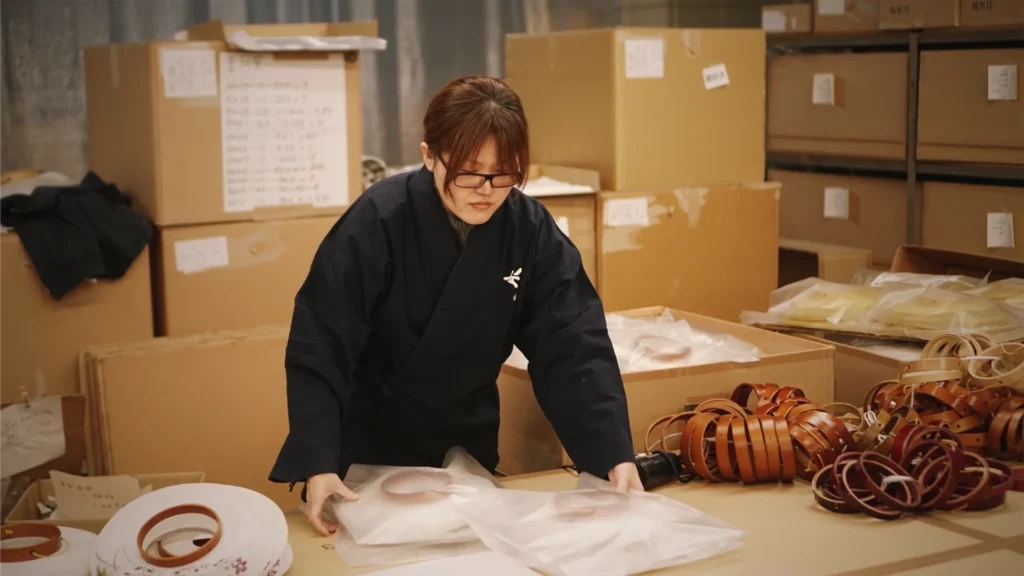
Fujiki Crafts is a reliable partner for businesses looking to import authentic Japanese traditional goods
We handle the details, from making sure the items are packed correctly for shipping to dealing with customs paperwork. We want to make sure your experience is smooth and that you get exactly what you expect. If you’re thinking about adding Japanese traditional goods to your inventory, reach out to us. We’re happy to chat about how we can help your business grow with these beautiful items.
Japanese Traditional Goods In Modern Markets
Japanese traditional goods are finding new life in today’s markets. It’s not just about keeping old ways alive; it’s about making them fit into modern life and business. For B2B buyers, this means a chance to offer unique, high-quality products that stand out. Fujiki Crafts is at the forefront of this movement, connecting tradition with modern demand.
Adapting For Contemporary Appeal
Traditional Japanese crafts are not stuck in the past. Artisans and manufacturers are constantly looking for ways to make these items appealing to today’s consumers. This often means blending classic techniques with modern designs or finding new uses for traditional materials.
- Design Innovation: Think sleek, minimalist designs for ceramics or textiles that still use age-old weaving methods.
- Functional Adaptations: Traditional items are being re-imagined for everyday use, like lacquerware bowls for modern dining or textile patterns on phone cases.
- Material Exploration: New materials are sometimes combined with traditional ones to create fresh looks while keeping the craft’s essence.
The key is to respect the heritage while making products that people want to use and display in their contemporary homes and businesses. This balance is what makes these goods so special and marketable.
Global Retail Opportunities
The global market has a growing interest in authentic, handcrafted goods with a story. Japanese traditional goods fit this perfectly. For businesses looking to expand their product lines, these items offer a distinct advantage.
The demand for unique, culturally rich products is on the rise, creating significant opportunities for global retailers.
Here’s why Japanese traditional goods are a good fit for global retail:
- Cultural Appeal: Consumers are drawn to the rich history and stories behind these items.
- Quality and Craftsmanship: The reputation for meticulous work and durability makes them a premium choice.
- Exclusivity: Unlike mass-produced items, traditional crafts often have a limited production, adding to their appeal.
| Market Segment | Growth Rate (2024-2025) | Key Drivers |
|---|---|---|
| Home Decor | 8% | Authenticity, unique design |
| Giftware | 7% | Cultural significance, craftsmanship |
| Fashion | 6% | Traditional patterns, sustainable materials |
Preserving Heritage Through Commerce
When businesses buy and sell Japanese traditional goods, they’re doing more than just making a profit. They’re helping to keep these crafts alive. This commercial support provides artisans with a livelihood and encourages the next generation to learn these skills. It’s a win-win situation: businesses get great products, and a valuable cultural heritage is preserved.
- Supporting Artisans: Purchases directly support the craftspeople and their families.
- Knowledge Transfer: Commercial demand helps ensure that traditional techniques are passed down.
- Cultural Exchange: Bringing these goods to new markets shares Japanese culture with the world.
Fujiki Crafts is a trusted partner for businesses looking to source authentic Japanese traditional crafts. We work directly with artisans, ensuring fair practices and high-quality products ready for export. If you’re interested in exploring how Japanese traditional goods can benefit your business, contact us today. We can help you navigate the process and find the perfect products for your customers. We also have a strong focus on business succession within the traditional crafts industry, ensuring a steady supply of these unique items for years to come.
The Future Of Japanese Traditional Goods
Embracing Innovation
Innovation is key for traditional Japanese goods to stay relevant. It’s not about changing the core of these crafts, but finding new ways to present them and make them useful in today’s world. Think about how a traditional pattern can be used on a modern accessory, or how ancient techniques can create something entirely new. This blend of old and new keeps the crafts alive and appealing to a wider audience.
- New materials that complement traditional ones.
- Modern designs that incorporate classic motifs.
- Digital platforms for showcasing and selling products.
Connecting With New Audiences
Reaching new buyers is a big part of the future. Many people outside Japan might not know about these beautiful items. We need to show them why these goods are special and how they fit into different lifestyles. This means using new marketing strategies and making sure products are easy to find and buy globally. Fujiki Crafts is always looking for ways to connect with new audiences, helping to bring these crafts to the world. For example, we work to make sure our products are ready for export, meeting international standards and shipping needs. We also participate in global trade shows to introduce our items to a broader market. You can learn more about our approach to global retail opportunities.
We believe that by making these goods accessible and understandable to a global audience, we can ensure their continued success. It’s about sharing the story behind each piece and highlighting its unique value.
Preservation Efforts And Support
Keeping these traditions going takes effort. It means supporting the artisans, making sure their skills are passed down, and finding ways to make the craft a viable career. This also involves protecting the knowledge and techniques that have been developed over centuries. Businesses can play a big part by choosing to source authentic goods and by promoting the stories of the artisans. By working together, we can help ensure that these crafts thrive for generations to come. Consider exploring the Kitamoto Dyeing tradition as an example of such preservation.
Japanese traditional goods are more than just pretty things; they tell stories and keep old ways alive. They connect us to a rich past, showing off amazing skills and ideas that have been passed down for ages. If you want to see how these special items are still made today and learn about their history, check out our website. You’ll find out how we help keep these traditions strong for the future.
Conclusion
So, that’s a quick look at Japanese traditional goods. It’s pretty clear these items are more than just things; they’re like little pieces of history. Each one shows off the skill and care of the people who made it. From delicate pottery to detailed textiles, these crafts connect us to Japan’s long cultural story. If you’re thinking about getting some of these unique items for your collection or your business, working with a good supplier, like Fujiki Crafts, can help you share these cool traditions with more people. Let’s all help keep these crafts going strong!
Read more: Assembling Your Perfect Hinamatsuri Set: A Buyer’s Guide
